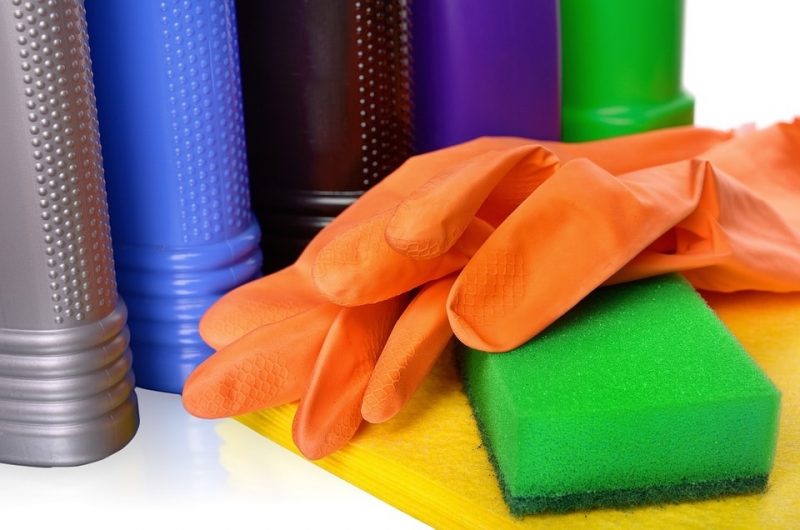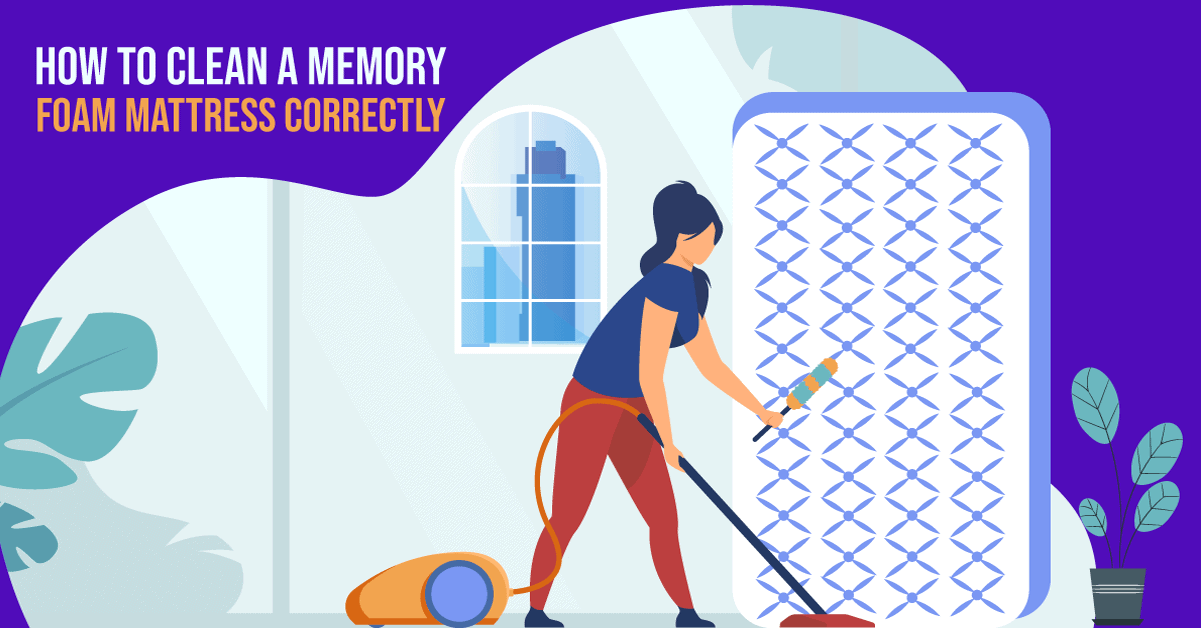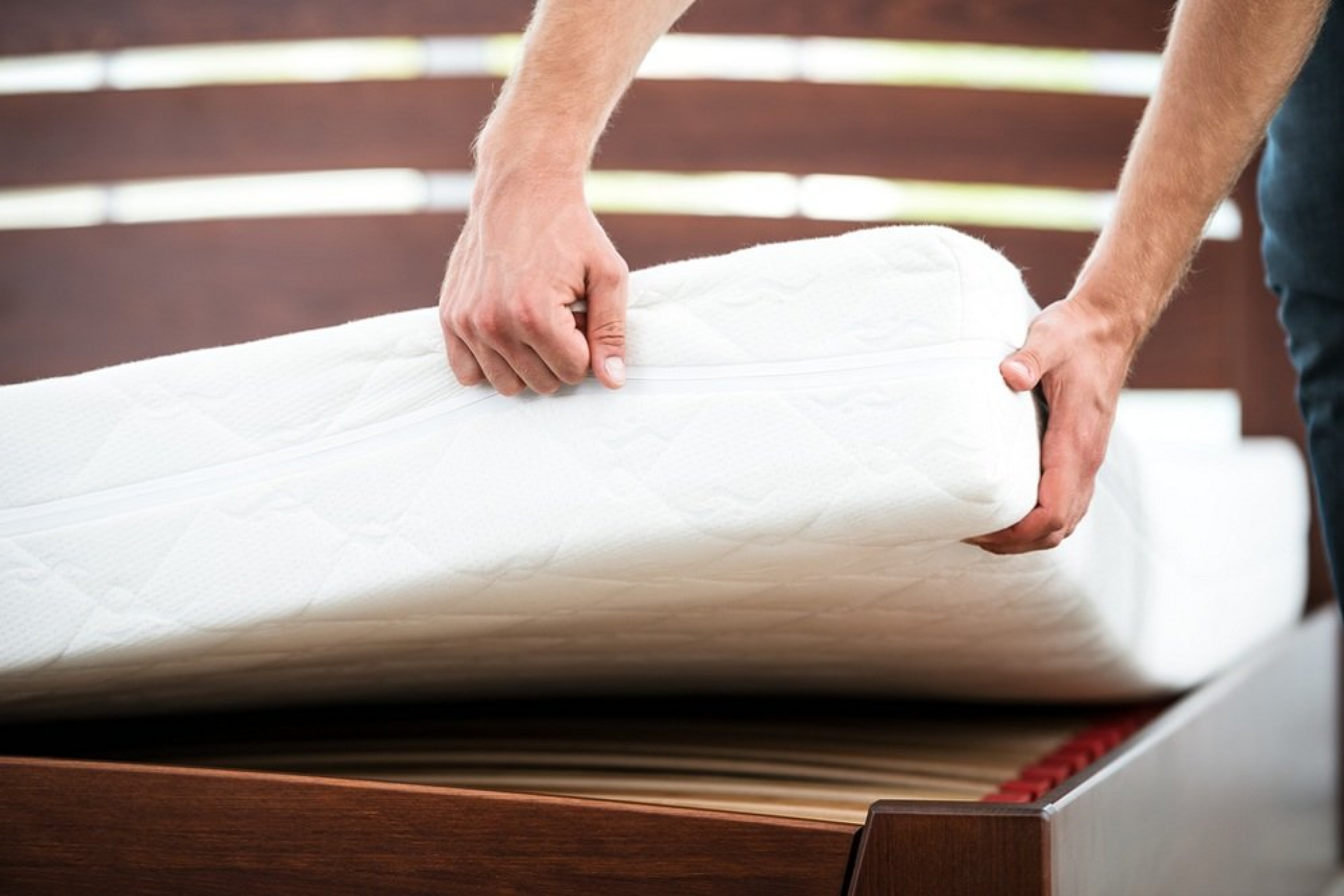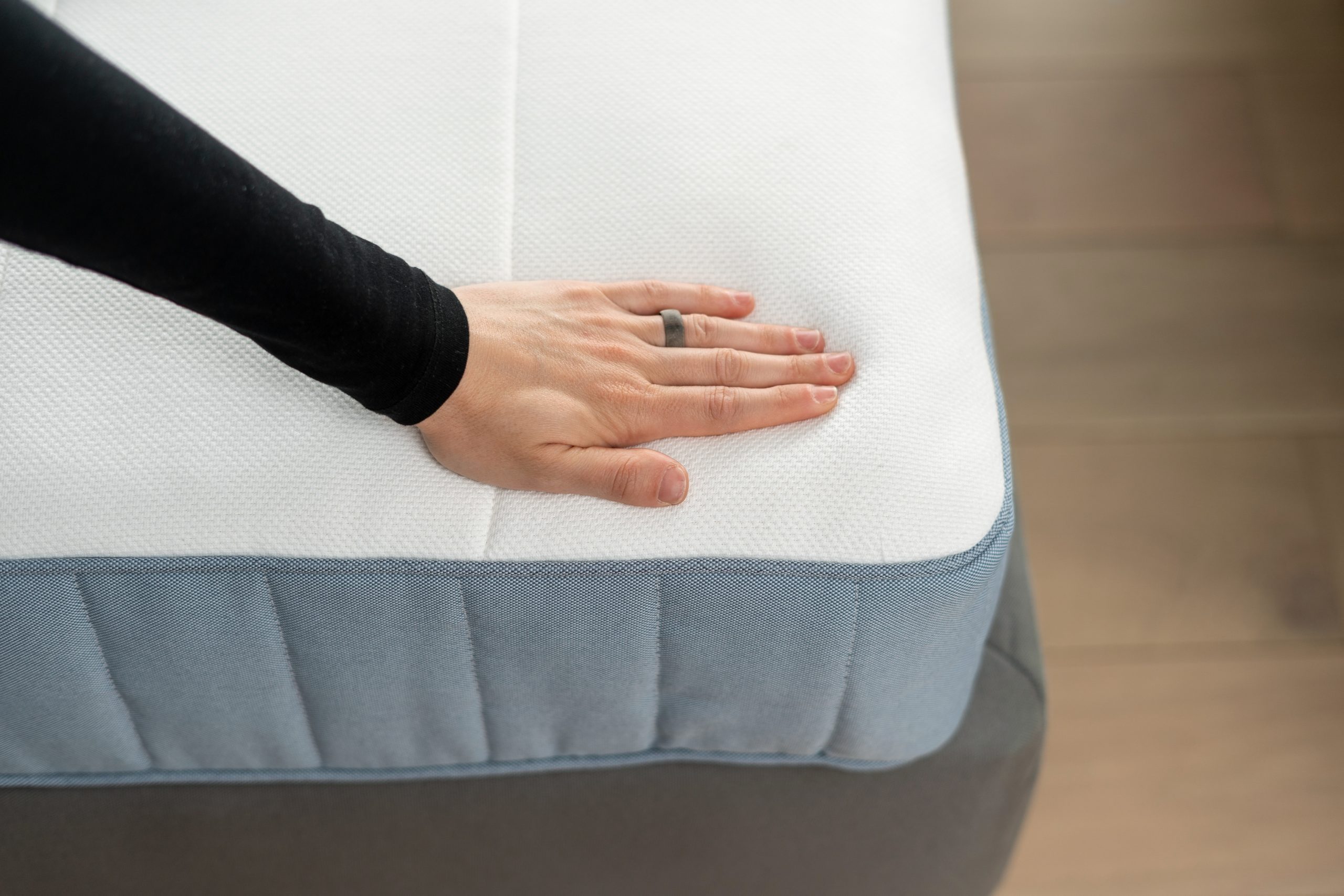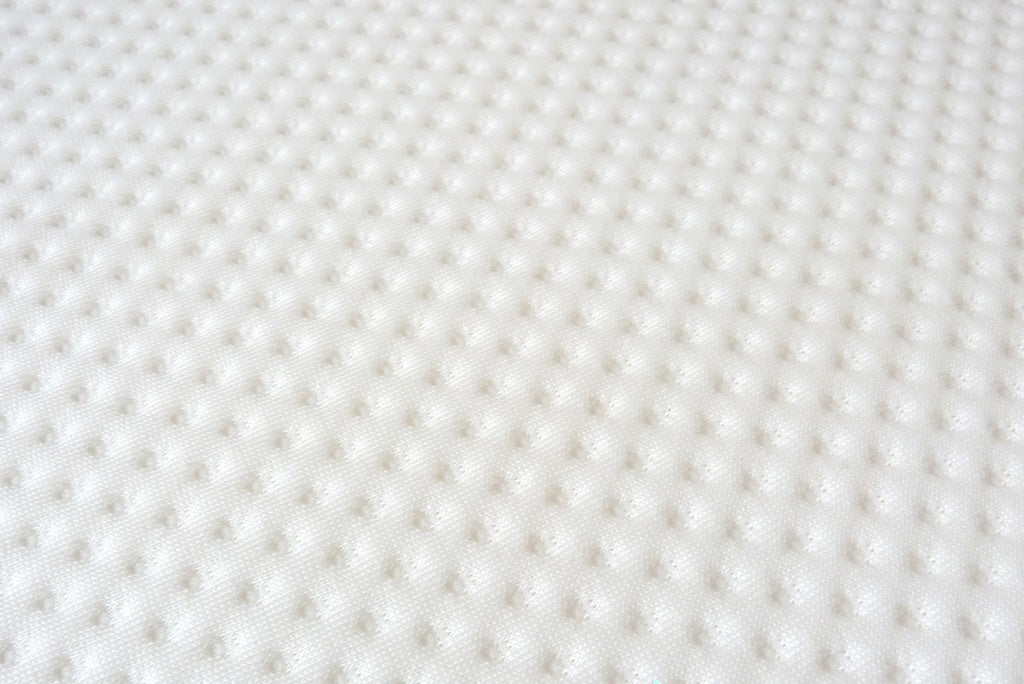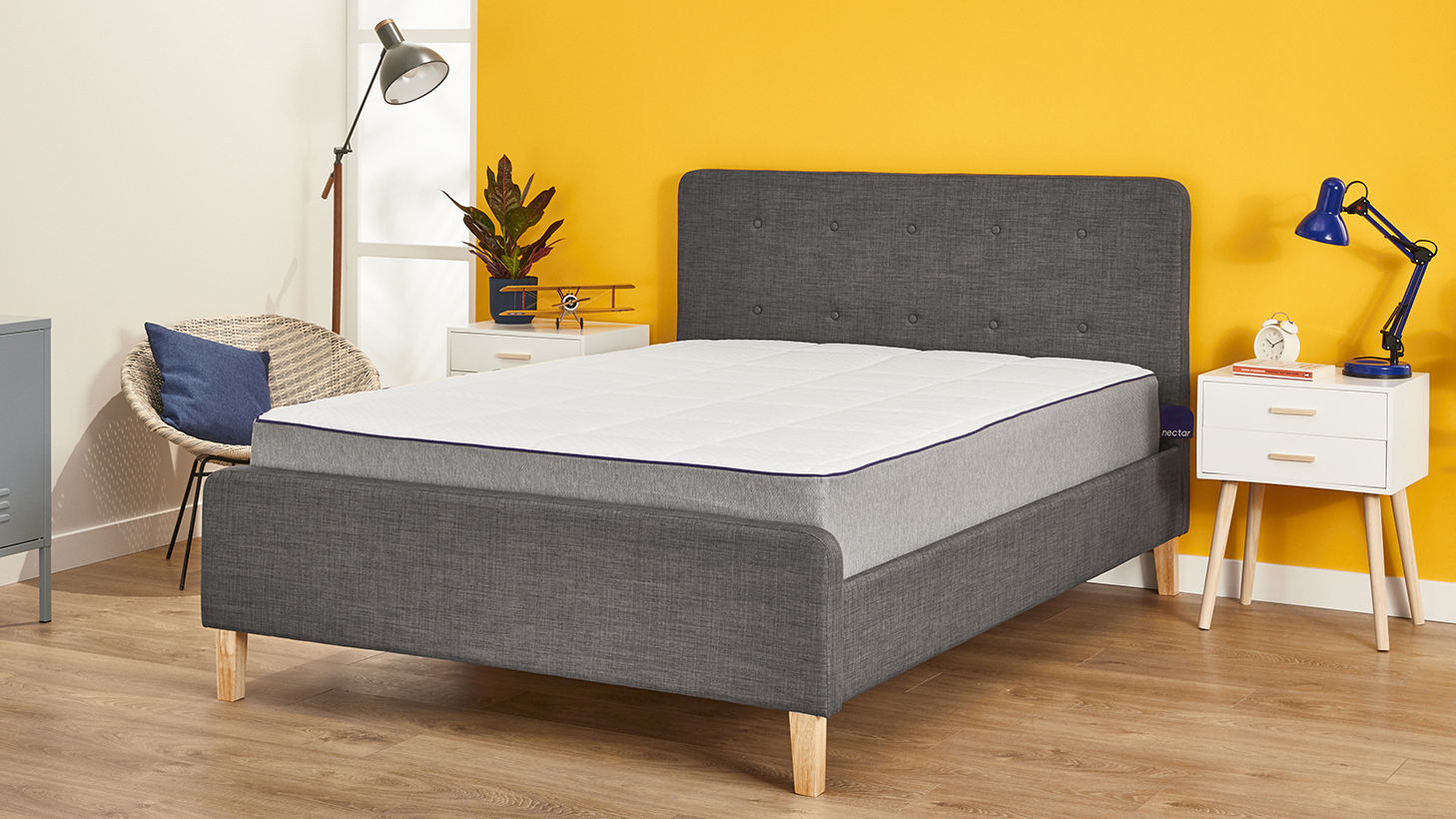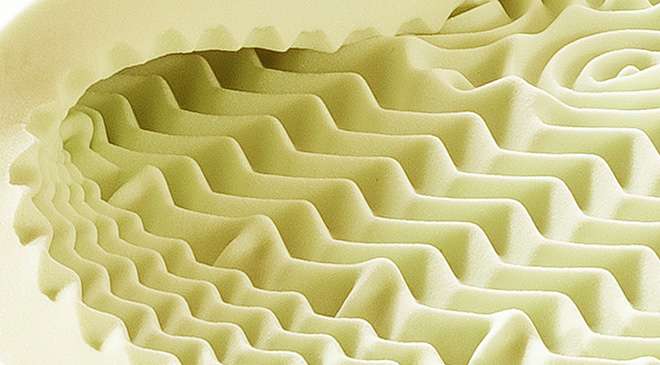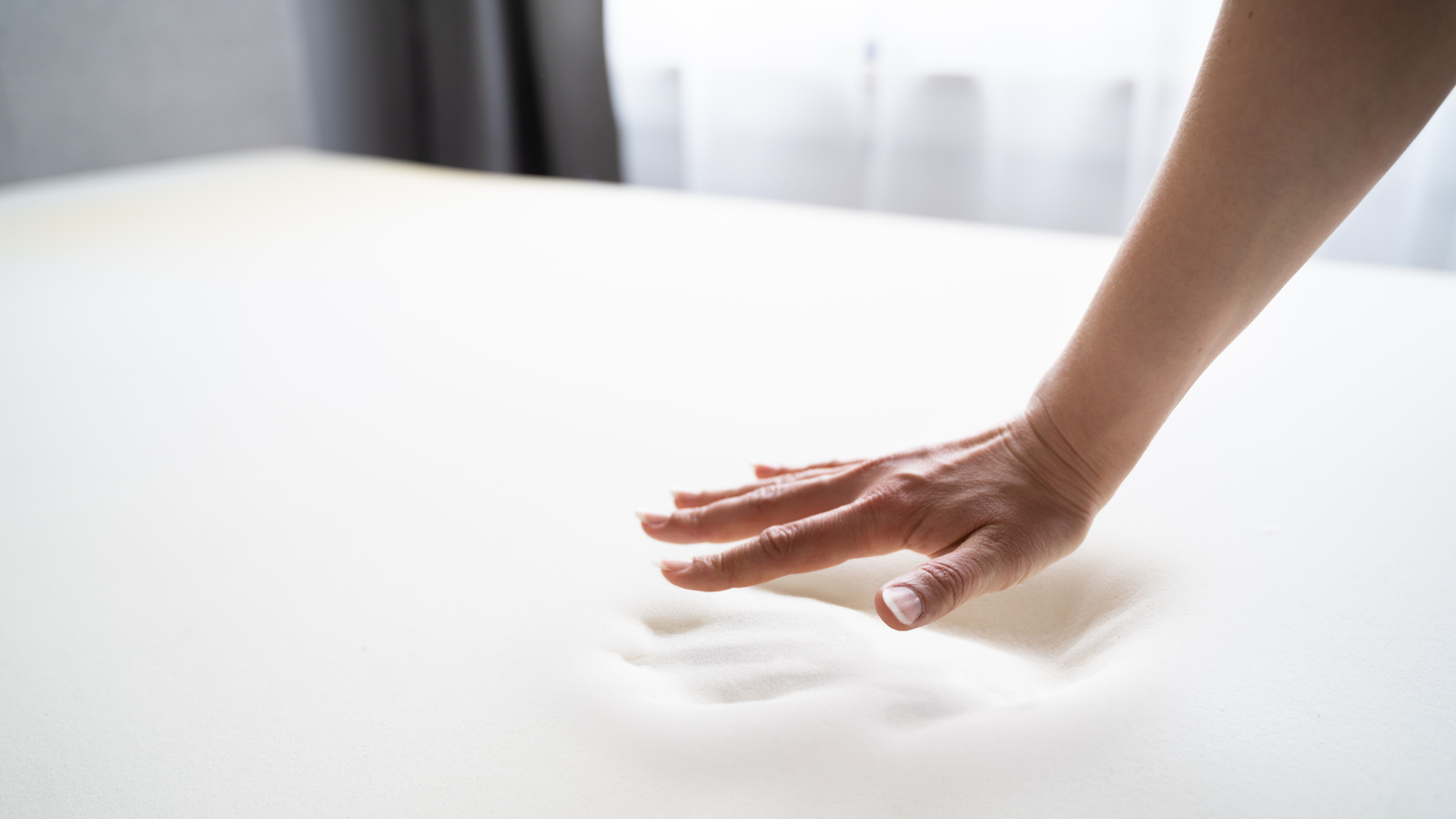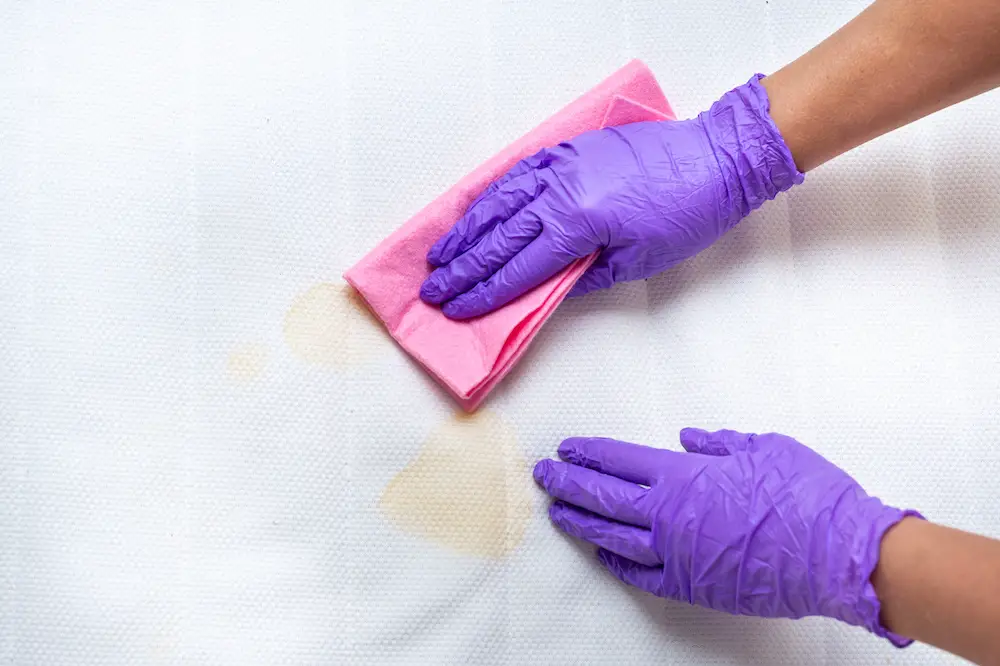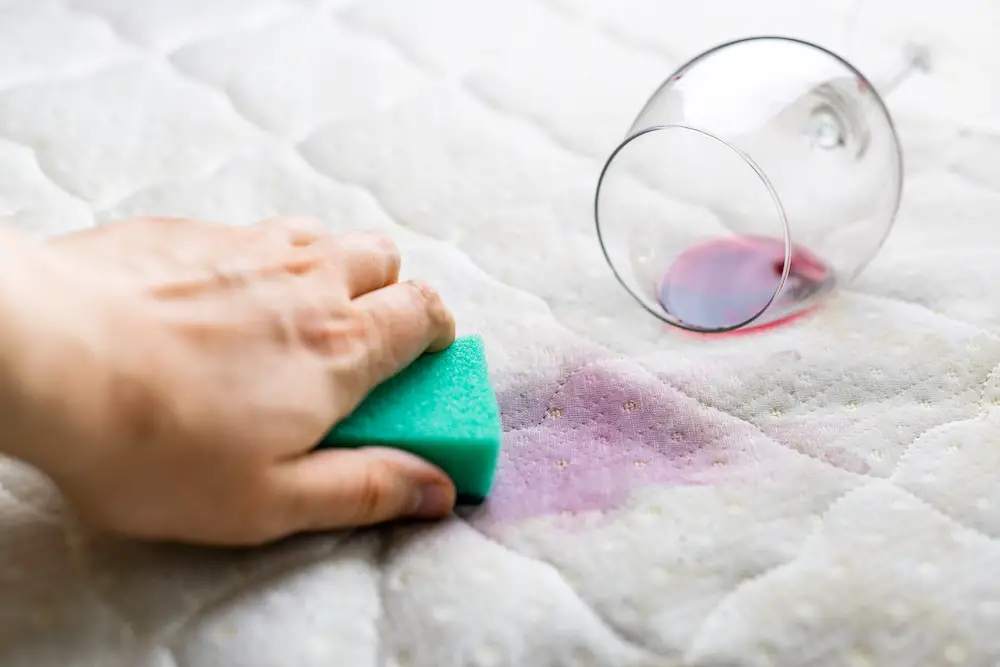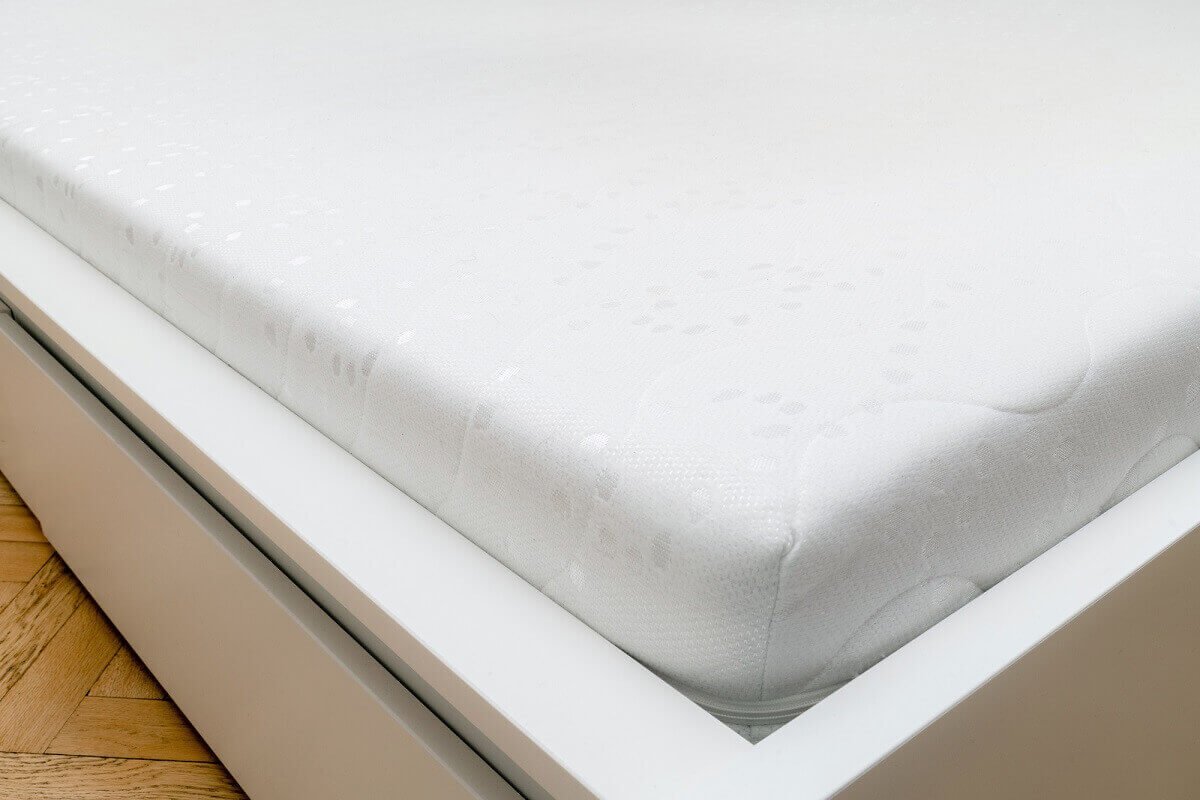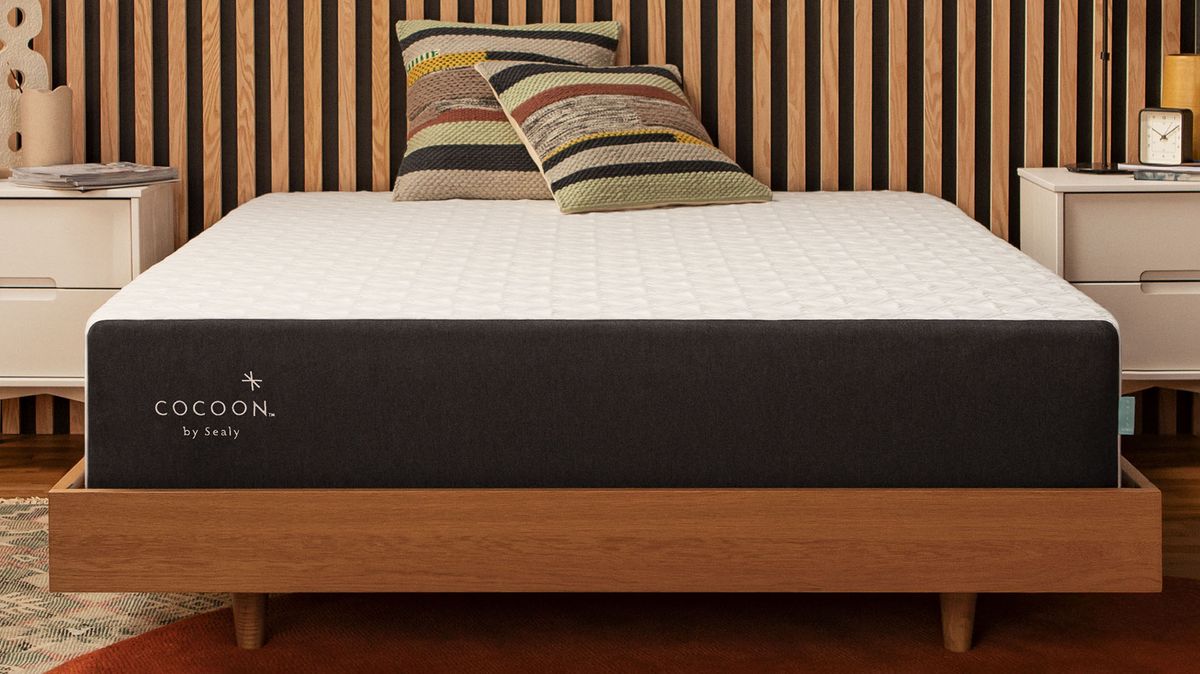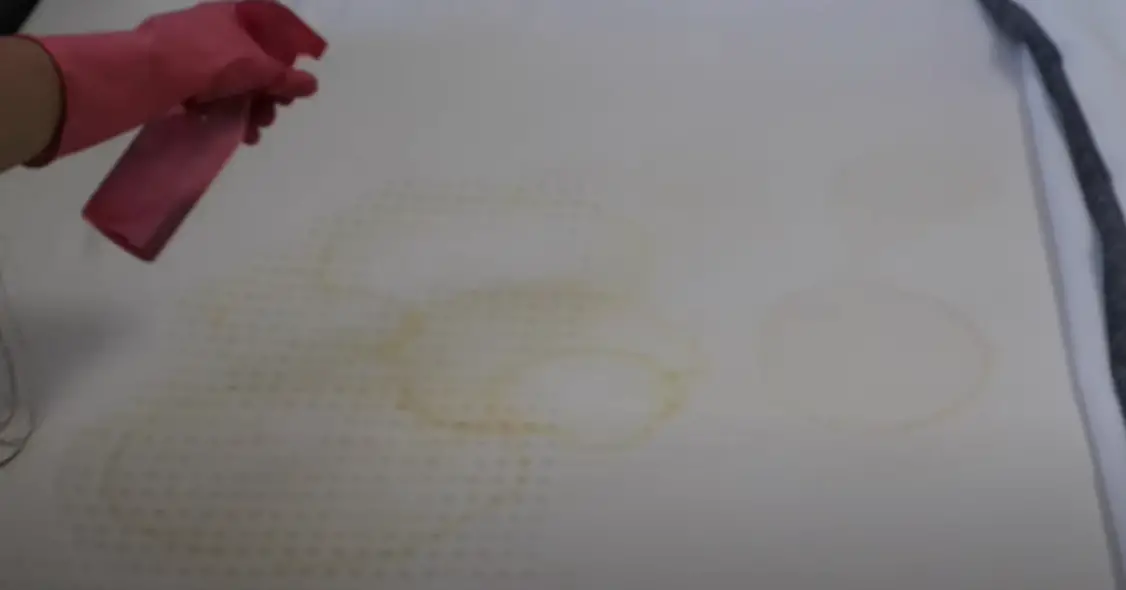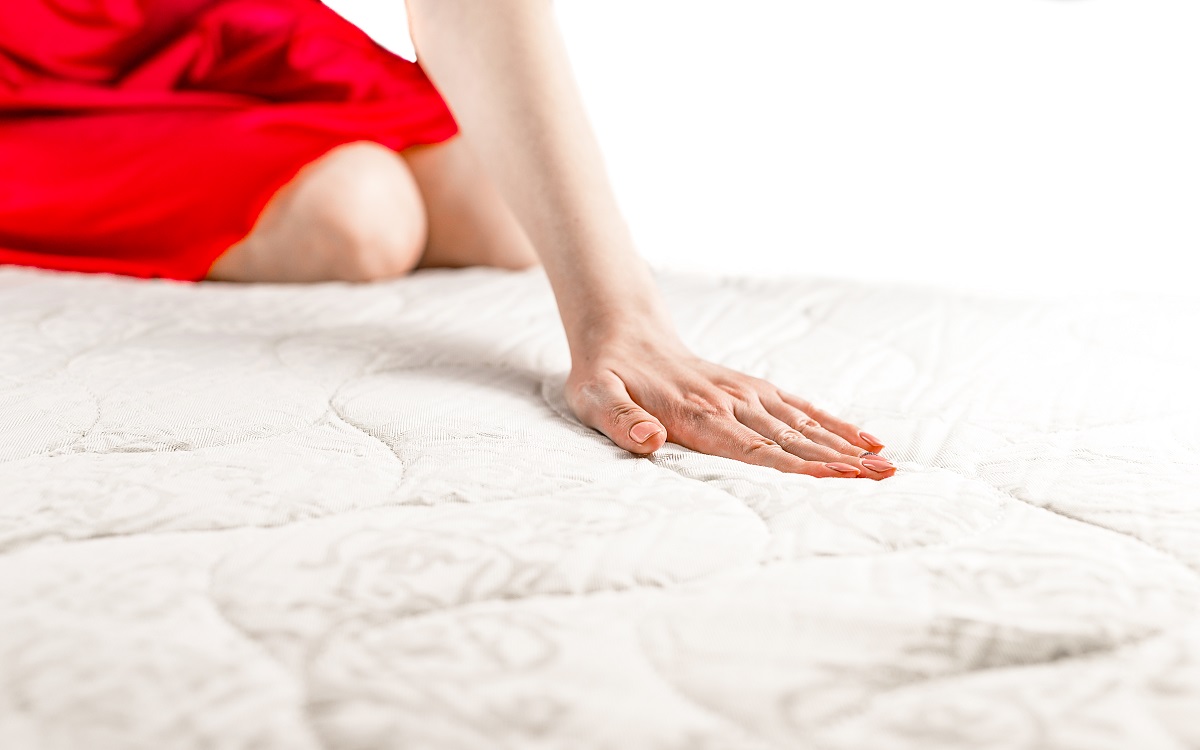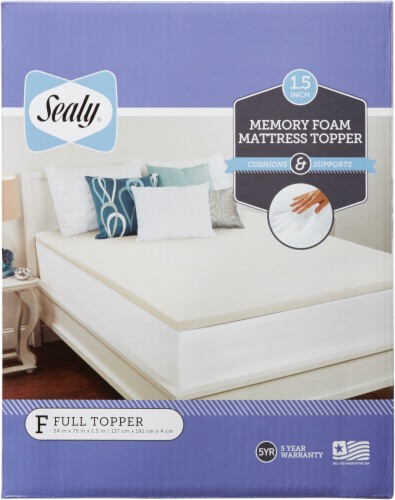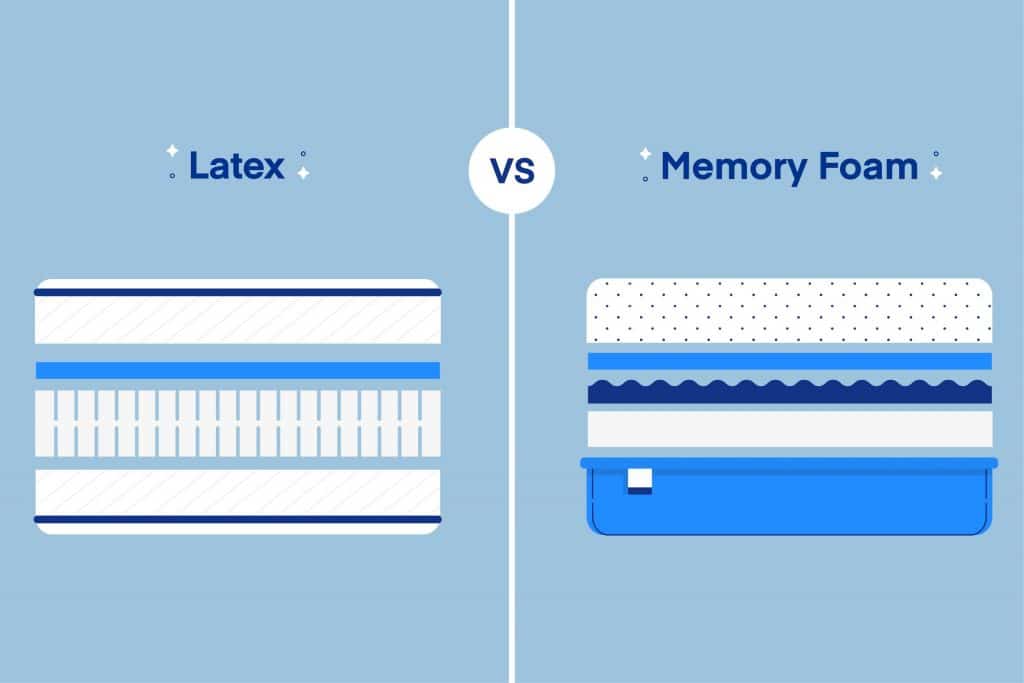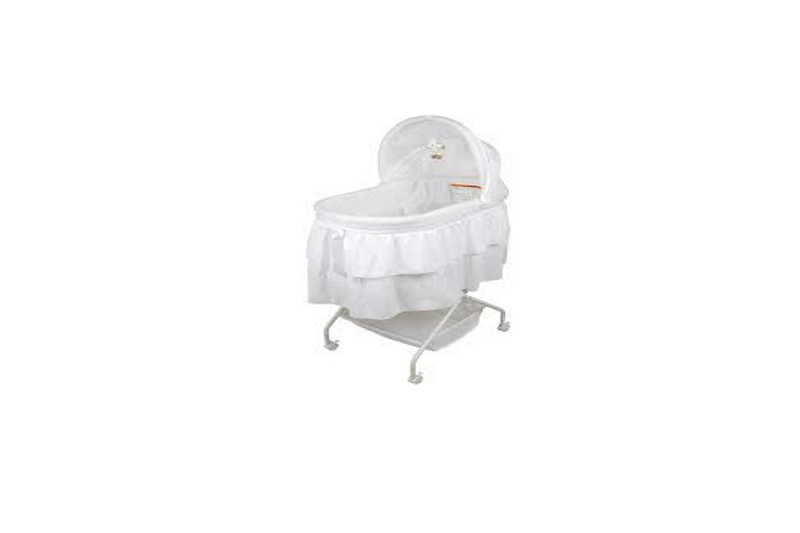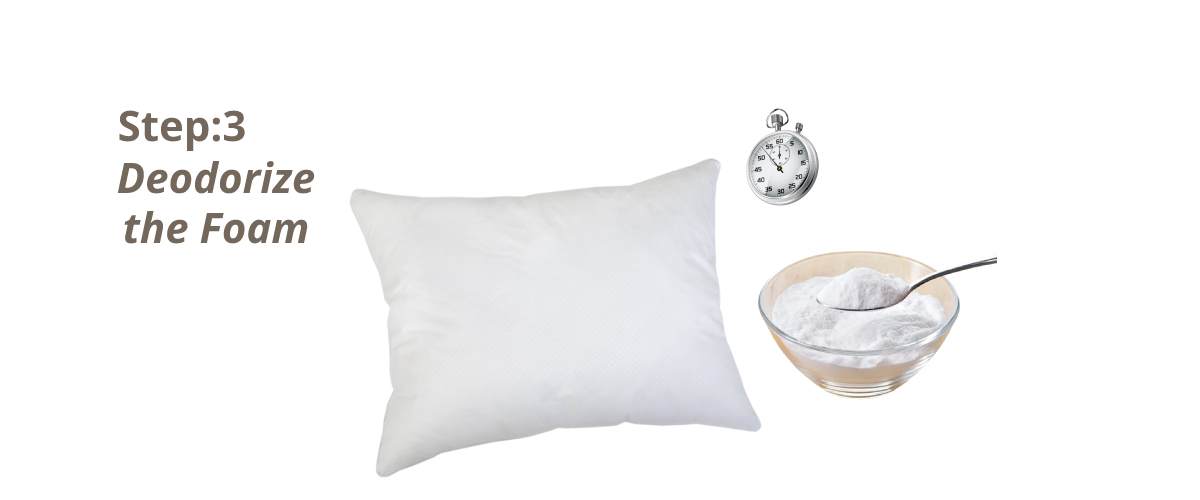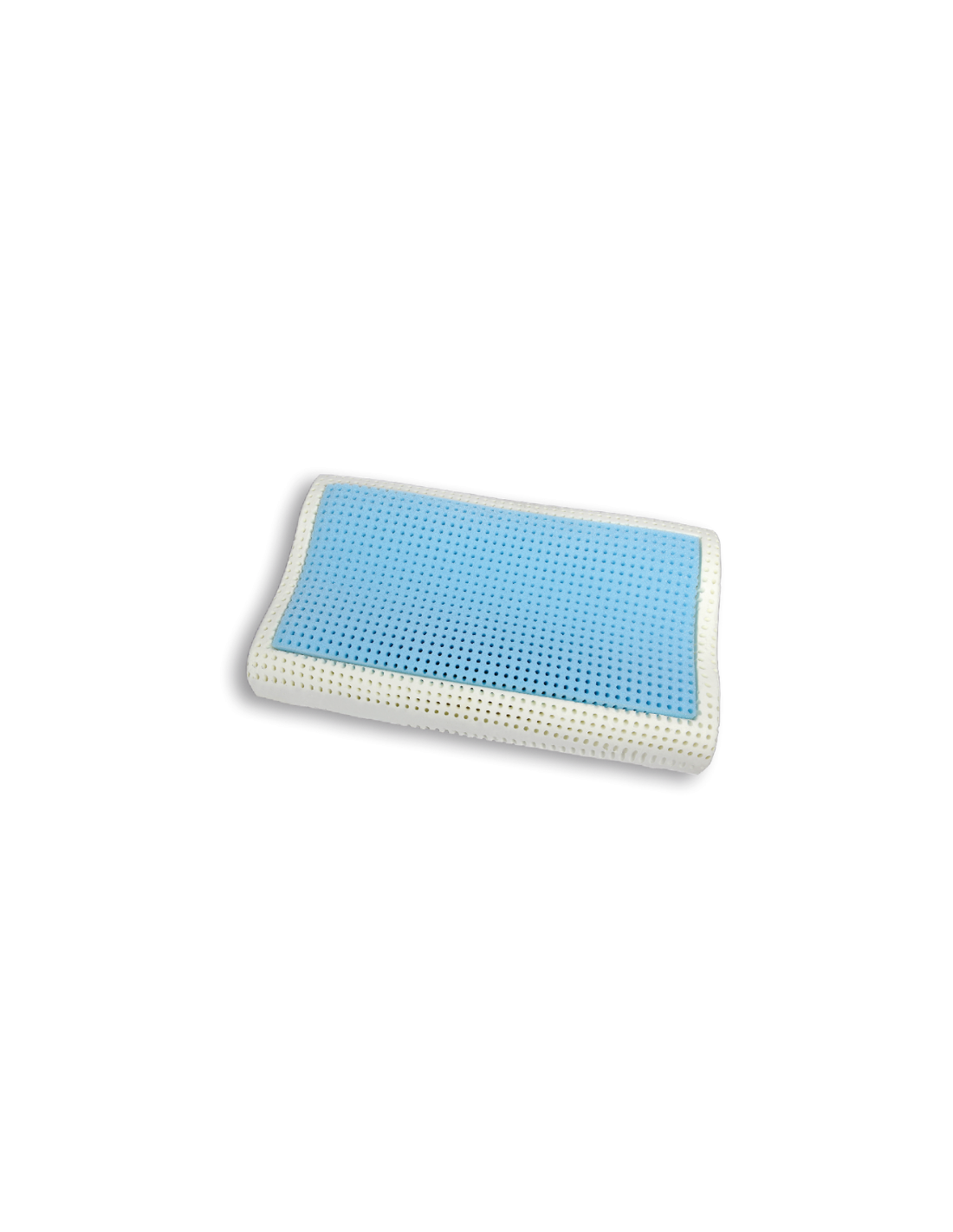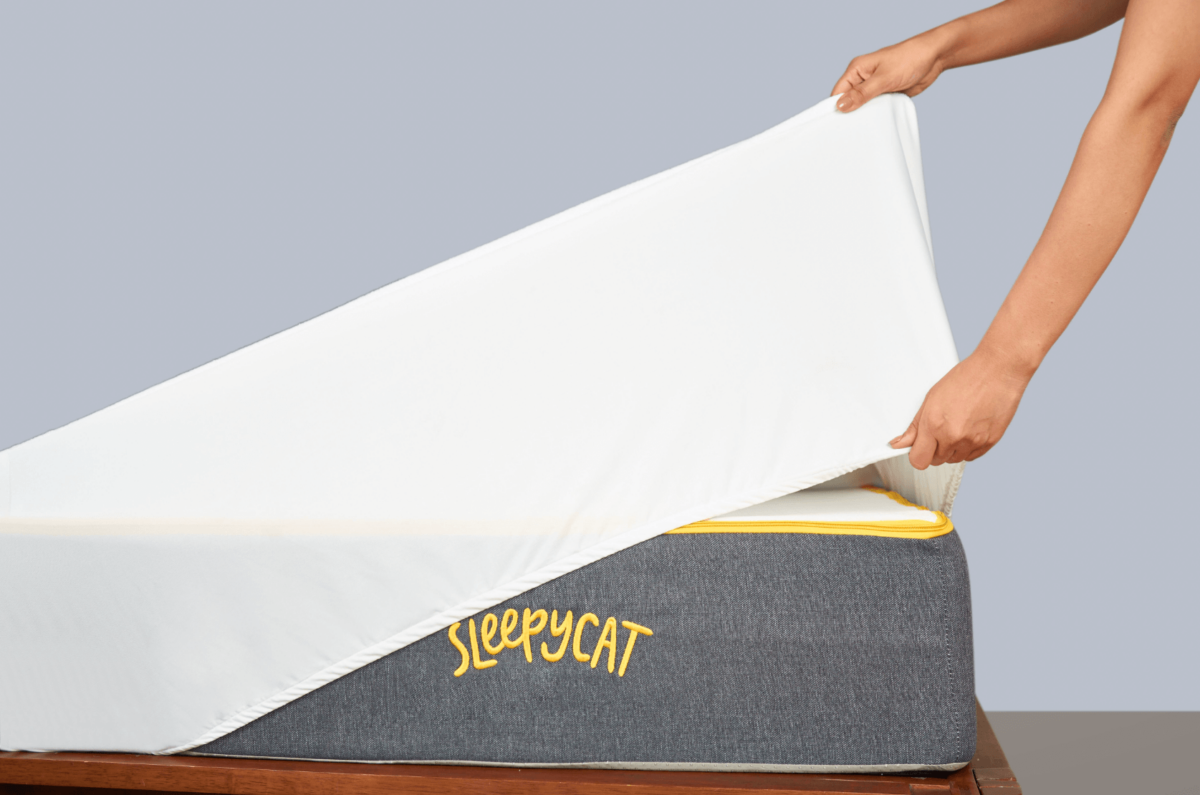Memory foam mattresses are known for their comfort and support, but they also require special care to maintain their quality. Cleaning your memory foam mattress regularly can help extend its lifespan and keep it looking and feeling like new. To keep your mattress clean and fresh, follow these simple steps: Step 1: Remove all bedding and mattress protectors from your memory foam mattress. Step 2: Mix a solution of mild detergent and warm water in a spray bottle. Step 3: Lightly spray the solution onto the surface of the mattress, focusing on any stains or soiled areas. Step 4: Use a clean, damp cloth to gently blot and clean the sprayed areas. Avoid scrubbing, as this can damage the foam. Step 5: Rinse the cloth and repeat the process until all visible stains are removed. Step 6: Use a dry cloth to absorb as much moisture as possible from the mattress. Step 7: Allow the mattress to air dry completely before replacing bedding and protectors. It's important to note that you should never use bleach or harsh chemicals on a memory foam mattress, as this can damage the material. Also, avoid getting the foam too wet, as it can take a long time to dry and may develop a musty smell.1. How to Clean a Memory Foam Mattress
Regular cleaning is just one aspect of caring for your memory foam mattress. To keep it in top condition, here are some additional tips to keep in mind: Rotate it regularly: Memory foam mattresses can develop uneven wear and sagging if not rotated regularly. Aim to rotate your mattress at least every three months to distribute your weight evenly across the surface. Use a mattress protector: Investing in a good quality mattress protector can help protect your memory foam mattress from spills, stains, and dust mites. Look for one that is waterproof and breathable to prevent any moisture buildup. Let it breathe: Memory foam mattresses need to breathe to stay fresh and prevent mold and mildew growth. Whenever possible, remove bedding and allow the mattress to air out for a few hours before making the bed. Don't jump on it: As tempting as it may be, avoid jumping on your memory foam mattress. The foam is sensitive to pressure and can develop indentations if subjected to excessive weight or force.2. Tips for Maintaining Your Memory Foam Mattress
When it comes to caring for your memory foam mattress, there are a few dos and don'ts to keep in mind to ensure it lasts for years to come: Do: Use a mattress protector: As mentioned earlier, using a mattress protector can help protect your mattress from stains and spills. Rotate your mattress: Regularly rotating your mattress can help evenly distribute your weight and prevent sagging. Follow the manufacturer's instructions: Every memory foam mattress comes with specific care instructions, so make sure to read and follow them carefully. Don't: Use harsh chemicals: As mentioned earlier, avoid using bleach or other harsh chemicals on your memory foam mattress. Expose it to direct sunlight: Memory foam can become damaged and discolored when exposed to direct sunlight for extended periods. Overload it with weight: Memory foam mattresses are designed to support a certain amount of weight, so avoid exceeding the recommended weight limit to prevent damage.3. The Dos and Don'ts of Memory Foam Mattress Care
Protecting your memory foam mattress goes beyond just keeping it clean. Here are some additional ways to extend its lifespan and preserve its quality: Invest in a good quality foundation: Memory foam mattresses require a supportive foundation to prevent sagging and maintain their shape. Make sure to use a foundation or frame that is specifically designed for memory foam mattresses. Use a mattress topper: A mattress topper can add an extra layer of comfort and protection to your memory foam mattress. Look for one that is specifically designed for memory foam mattresses and has good ventilation to prevent heat buildup. Rotate it head to toe: In addition to rotating your mattress side to side, also rotate it head to toe every six months to prevent uneven wear and sagging. Keep pets off the bed: As much as we love our furry friends, they can cause damage to our mattresses with their claws. To prevent tears and scratches, it's best to keep them off the bed.4. Protecting Your Memory Foam Mattress: A Complete Guide
Accidents happen, and sometimes our mattresses end up with stains. Here's how to remove common stains from a memory foam mattress: Blood stains: Mix hydrogen peroxide and dish soap and apply it to the stain. Let it sit for a few minutes before gently blotting it with a clean cloth. Urine stains: Mix equal parts water and white vinegar and apply it to the stain. Let it sit for a few minutes before blotting it with a clean cloth. Repeat if necessary. Food or drink stains: Mix a mild detergent with warm water and apply it to the stain. Let it sit for a few minutes before blotting it with a clean cloth. Remember to always blot and avoid rubbing or scrubbing, as this can damage the foam. For tougher stains, you may need to use a specialized enzyme cleaner designed for memory foam mattresses.5. How to Remove Stains from a Memory Foam Mattress
Rotating your memory foam mattress is essential for maintaining its shape and preventing sagging. Here's the best way to rotate your mattress: Step 1: Remove all bedding and mattress protectors from your mattress. Step 2: Stand at the foot of your bed and grab the sides of your mattress. Step 3: Lift the mattress and rotate it 180 degrees (head to toe). Step 4: Carefully lower the mattress back onto the foundation or frame. Step 5: Replace bedding and protectors. It's important to note that memory foam mattresses should only be rotated, not flipped like traditional mattresses. This is because the foam is designed to conform to your body and flipping it can result in uneven support and uncomfortable sleeping conditions.6. The Best Way to Rotate Your Memory Foam Mattress
When purchasing a memory foam mattress, make sure to carefully read and understand the warranty and care instructions provided by the manufacturer. Each mattress may have different requirements and guidelines for care and maintenance, and it's important to follow them to avoid voiding the warranty. Most memory foam mattresses come with a warranty of 10-20 years, but this can vary depending on the brand and model. Keep in mind that the warranty may only cover manufacturing defects and not damage caused by improper care.7. Understanding Memory Foam Mattress Warranty and Care Instructions
Over time, memory foam mattresses can develop a musty smell due to moisture buildup and the accumulation of sweat and body oils. To keep your mattress smelling fresh and clean, here's how to deodorize it: Step 1: Sprinkle baking soda over the surface of your mattress. Step 2: Let it sit for at least 30 minutes to absorb any odors. Step 3: Use a vacuum cleaner with an upholstery attachment to remove the baking soda from the surface of the mattress. You can also add a few drops of your favorite essential oil to the baking soda for a fresh and pleasant scent. Just make sure to let it dry completely before replacing bedding and protectors.8. How to Deodorize a Memory Foam Mattress
As mentioned earlier, investing in a good quality mattress protector is crucial for protecting your memory foam mattress from spills, stains, and dust mites. But it also has other benefits, such as: Prolonging the lifespan of your mattress: A mattress protector acts as a barrier between your body and the mattress, preventing sweat, oils, and dead skin cells from seeping into the foam and causing damage. Improving air circulation: Many mattress protectors are designed with breathable materials that allow air to circulate and prevent heat buildup, keeping you cool and comfortable while you sleep. Making cleaning easier: A mattress protector can easily be removed and washed, making it much easier to clean than trying to remove stains or odors from the mattress itself.9. The Importance of Using a Mattress Protector for Your Memory Foam Mattress
Lastly, here are some common mistakes to avoid when caring for your memory foam mattress: Using harsh chemicals: As mentioned earlier, avoid using bleach or other harsh chemicals on your memory foam mattress, as this can damage the foam. Not rotating the mattress: Rotating your mattress regularly is crucial for maintaining its shape and preventing sagging. Not using a mattress protector: A good quality mattress protector can greatly extend the lifespan of your mattress and make cleaning and maintenance much easier. Letting spills sit for too long: It's important to clean up spills and stains as soon as possible to prevent them from setting into the foam and becoming more difficult to remove. By avoiding these common mistakes and following the tips and guidelines provided in this article, you can keep your memory foam mattress clean, fresh, and comfortable for years to come.10. Common Mistakes to Avoid When Caring for a Memory Foam Mattress
Why Proper Care is Essential for Your Memory Foam Mattress

The Benefits of Owning a Memory Foam Mattress
 Memory foam mattresses have become increasingly popular in recent years, and for good reason. These mattresses are known for their ability to conform to the body and provide optimal support for a comfortable night's sleep. They also have the added benefit of reducing motion transfer, making them ideal for couples or those who share a bed. However, in order to ensure that your memory foam mattress continues to provide these benefits for years to come, proper care is essential.
Memory foam mattresses have become increasingly popular in recent years, and for good reason. These mattresses are known for their ability to conform to the body and provide optimal support for a comfortable night's sleep. They also have the added benefit of reducing motion transfer, making them ideal for couples or those who share a bed. However, in order to ensure that your memory foam mattress continues to provide these benefits for years to come, proper care is essential.
How to Care for Your Memory Foam Mattress
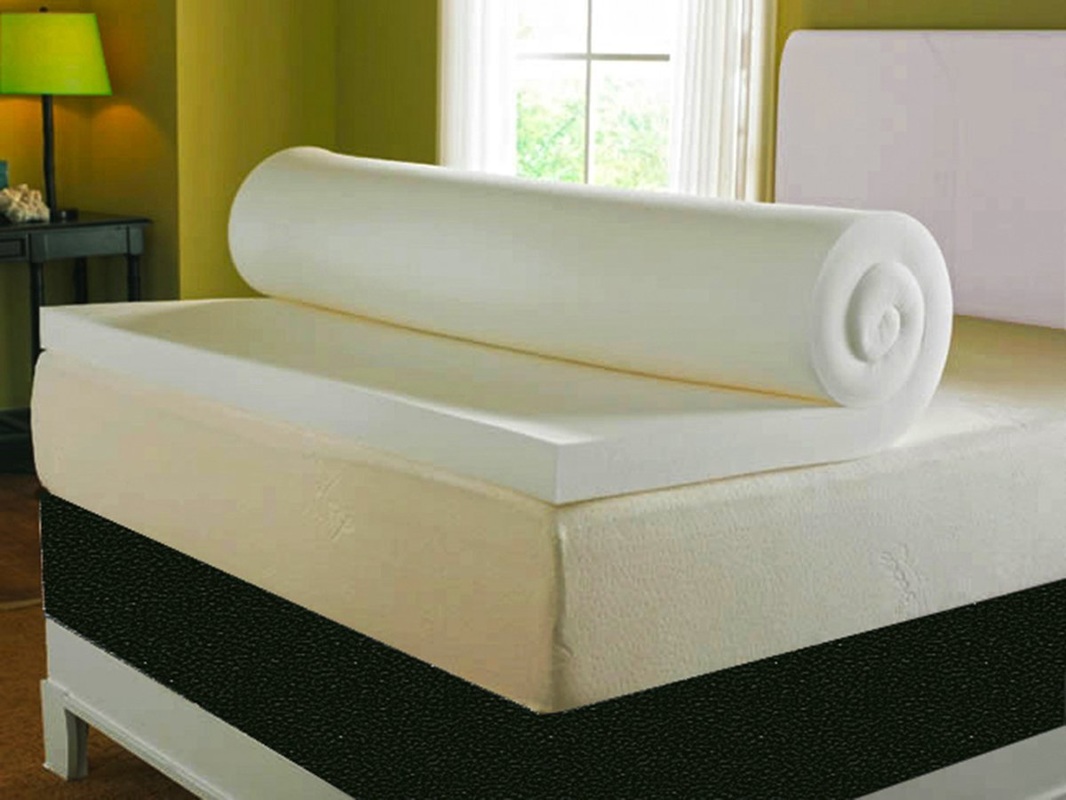 First and foremost, it is important to regularly rotate your memory foam mattress. This will help to evenly distribute the weight and prevent sagging in certain areas. Rotating your mattress every 3-6 months is recommended, but be sure to check the manufacturer's instructions for specific guidelines.
In addition, using a mattress protector is highly recommended. This will not only protect your mattress from spills and stains, but also from dust, dirt, and other allergens. Regularly washing the mattress protector will help keep your mattress clean and prolong its lifespan.
First and foremost, it is important to regularly rotate your memory foam mattress. This will help to evenly distribute the weight and prevent sagging in certain areas. Rotating your mattress every 3-6 months is recommended, but be sure to check the manufacturer's instructions for specific guidelines.
In addition, using a mattress protector is highly recommended. This will not only protect your mattress from spills and stains, but also from dust, dirt, and other allergens. Regularly washing the mattress protector will help keep your mattress clean and prolong its lifespan.
Preventing and Removing Stains
 Accidents happen, and it's important to know how to properly clean and remove stains from your memory foam mattress. In the event of a spill, blot the area immediately with a clean cloth or paper towel. Avoid rubbing the stain, as this can cause it to spread and become more difficult to remove.
For tougher stains, a mixture of mild detergent and warm water can be used to gently scrub the affected area. Be sure to thoroughly rinse and dry the area afterwards. It is also recommended to use a mattress cleaner specifically designed for memory foam mattresses.
Accidents happen, and it's important to know how to properly clean and remove stains from your memory foam mattress. In the event of a spill, blot the area immediately with a clean cloth or paper towel. Avoid rubbing the stain, as this can cause it to spread and become more difficult to remove.
For tougher stains, a mixture of mild detergent and warm water can be used to gently scrub the affected area. Be sure to thoroughly rinse and dry the area afterwards. It is also recommended to use a mattress cleaner specifically designed for memory foam mattresses.
Avoiding Damage
 Proper care also involves being mindful of potential damage to your memory foam mattress. Avoid sitting on the edges or jumping on the bed, as this can cause the foam to compress and lose its shape. Additionally, avoid using sharp objects on or near the mattress, as they can puncture or tear the foam.
Proper care also involves being mindful of potential damage to your memory foam mattress. Avoid sitting on the edges or jumping on the bed, as this can cause the foam to compress and lose its shape. Additionally, avoid using sharp objects on or near the mattress, as they can puncture or tear the foam.
Conclusion
 By following these tips and properly caring for your memory foam mattress, you can ensure that it continues to provide you with a comfortable and supportive sleep for years to come. With regular maintenance and a little extra effort, you can enjoy all the benefits of a memory foam mattress for a long time. So go ahead, invest in a high-quality memory foam mattress and give it the care it deserves to enjoy a restful and rejuvenating sleep every night.
By following these tips and properly caring for your memory foam mattress, you can ensure that it continues to provide you with a comfortable and supportive sleep for years to come. With regular maintenance and a little extra effort, you can enjoy all the benefits of a memory foam mattress for a long time. So go ahead, invest in a high-quality memory foam mattress and give it the care it deserves to enjoy a restful and rejuvenating sleep every night.




